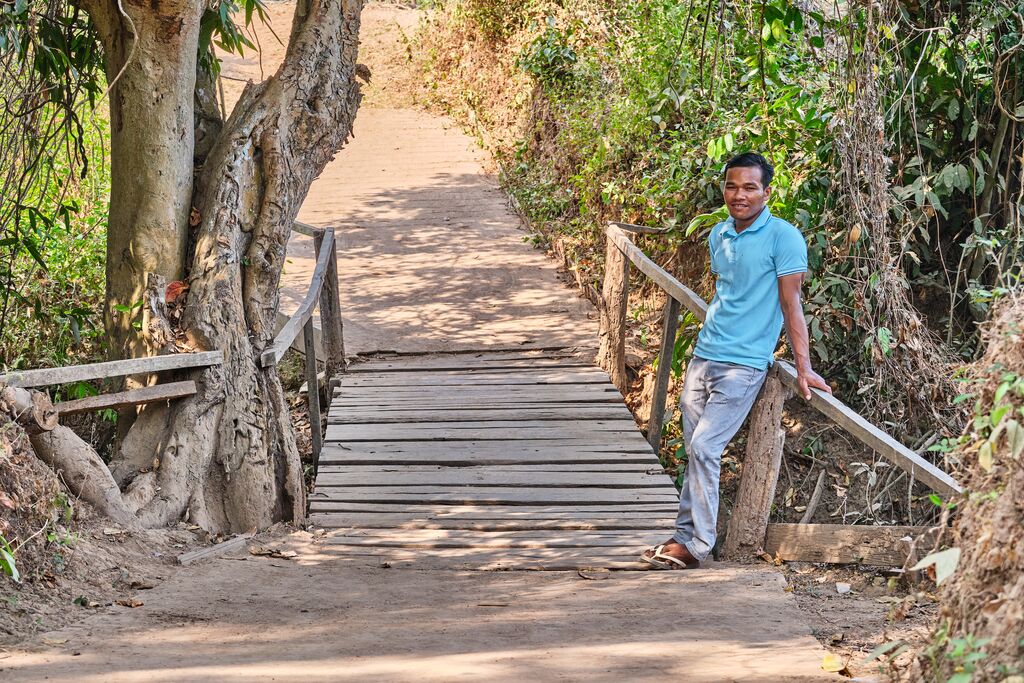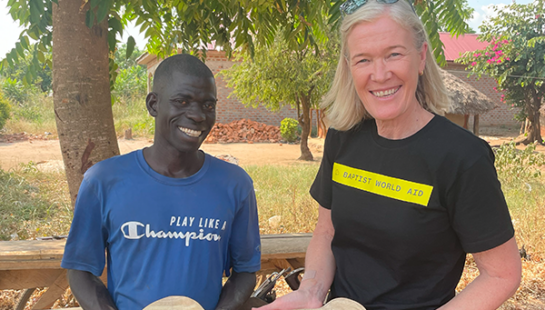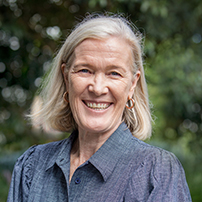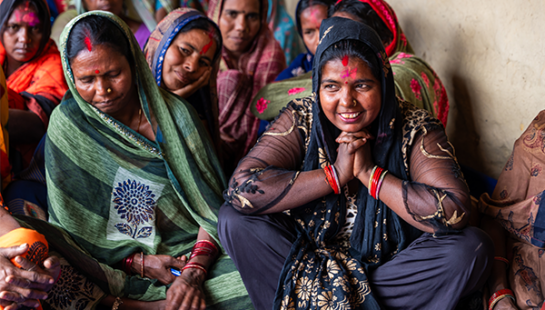When you think about community development, what comes to mind? Maybe running town meetings? Digging wells and improving hospitals? Sending people in to fix problems in a community?
Community development can mean a lot of different things to people, and not all ideas are helpful—especially when they involve an organisation coming into a community to do the work for them, without understanding what they need.
According to the UN, community development is when ‘community members come together to take collective action and generate solutions to common problems.’ It’s about people working together rather than receiving charity, so their actions meaningfully address the issues that are important to them.
What Is Christ-informed Community Development?
So then, what is it about Christian community development that makes it unique?
At the heart of the Bible’s storyline is a loving God whose intentions are for a world filled with healthy, vibrant creatures living in safe, just, and equitable communities, and lovingly engaged with God. As we know, humankind fails to live as we’ve been called, resulting in broken relationships with God, within communities and with the earth, and leading poverty and oppression we see.
But God doesn’t abandon his creation; he sets about redeeming and restoring it. Through the life, death, and resurrection of Jesus, he sets in motion an overturning of injustice and poverty, and the transformation of this world into one where people are in right relationships with God, one another, and the earth.
This perspective provides a rich concept of community development. It’s not about simply handing out Bibles with aid, or helping a community on the condition that they attend church. There’s lots of problems with this approach. Firstly, it’s not helpful, and can make any help seem insincere. Secondly, it ignores the wholistic nature of restoration. While community development can complement the mission of the church to evangelise, it’s aim is to demonstrate the love of God by caring for the whole person, and empowering communities to see the transformation that God intends.

So What Does Good Community Development Look Like?
With so many different aid organisations operating globally, it’s helpful to know what good community development looks like, so you know who to support. Here are six things to look out for, based on the work of our local Christian Partners who work respectfully with the communities they serve.
1. Empowerment, not welfare
Welfare focuses on doing things for people rather than with them. Community members become passive receivers, and the power lies with the organisation that provides aid. An empowerment model is different. It focuses on a community’s strengths, and encourages people to be active in developing a solution to their problems. This is more respectful of people’s dignity and agency, and puts the power in the community’s hands.
An example of empowerment is Shiva from Nepal. Shiva is a proud husband, father, grandfather, and business owner with his wife, Gita. As a bicycle courier, he’s always struggled to provide for his family, as he has a disability from injuring his leg as a child. Our Partner sensed Shiva’s passion for change, and invited him to take on a leadership role in their group for people with disability. Now, Shiva helps people with disabilities apply for ID cards so they can access government support.
This is what the empowerment model is all about: giving people like Shiva an opportunity to change their lives and create change in their community.
2. Locally led programs
Think about the suburb where you live, and all the things it might need: good roads, schools, lighting at night, disability access. Who would be best placed to decide what’s needed? Someone from another suburb or you and your neighbours, experiencing life in that suburb every day?
People with lived experience of local issues are in the best position to address the causes of poverty where they live. Projects work best when we strengthen local leadership and community members to address their needs. That’s why we work with local Christian Partners who have been in the area for a while and are trusted by the community.
Our Partners involve community members in designing projects, monitoring how they’re going, and evaluating how effective they’ve been. They also work through local groups such as Self Help Groups, Child and Youth Clubs and Village Development Committees. Partner staff work with community members to support and maintain these groups, so they can continue meeting the community’s needs well into the future.
3. Designed to last
Good community development isn’t about just taking care of present needs, but making sure that the work creates a positive impact for future generations. This can mean working with a community for a significant period, as genuine change takes time—especially when it involves behavioural change.
For this reason, our Partners have an exit strategy from the moment they begin, and ways to monitor how successful they are at helping a community develop solutions that last into the future. Community development partnerships also aim to build the capacity of local organisations, such as a church, or a community club. Part of this could involve linking that group with local governments for continued dialogue and support, and making sure they can advocate the government for positive, sustainable change.
4. Inclusive of those who are marginalised
If you’re unable to access basic rights like healthcare and citizenship because of your ethnicity, gender, age, or ability, it’s near impossible to thrive. That’s why good community development focuses on those who are marginalised through Gender Equality, Disability and Social Inclusion work—known as GEDSI.
GEDSI is a framework that makes sure projects reach those who need it most, and promote their rights. Our Partners identify who are the most vulnerable in a community and intentionally work with groups that are disadvantaged (e.g. giving priority to children with disability when forming Child Clubs), promoting gender equality, and identifying barriers that groups face to being included in community life.
Our Partners also work to change the mindset of a community and promote human rights. In many places, for example, children and youth are the most vulnerable, with lack of rights. Our Partners have a strong focus on helping children know their rights, and making sure that communities treat them with dignity.
5. Caring for the environment
Managing the environment sustainably isn’t just good for God’s creation; it also means that communities can be resilient to things like climate change, and maintain a livelihood well into the future. One example is our Partner’s work in countries like Kenya, which faces ongoing drought. They are training farmers in what is called ‘conservation agriculture’—for example, tilling the land in such a way where there is minimal loss of moisture and damage to the land.
Our Partners also help communities cope with the impacts of climate change through disaster management. Many of the world’s poorest communities live in locations which are impacted by tsunamis, earthquakes, landslides, and flooding. Instead of only responding to emergencies when they occur, our Partners work with communities to prepare for disasters, and put plans in place that help them have the best possible chance of survival.
6. Safety and transparency
Good community development doesn’t cause any harm to the people it’s intended to serve. That’s why safeguarding—preventative measures that ensure organisations don’t cause harm to vulnerable people—is so important. Safeguarding includes background checks during recruitment of staff and volunteers, designing activities that enable children to accompany their parents, ensuring there are mechanisms for community members to report abuse or harm, and enforcing safe communication protocols, especially when communicating with children.
Finally, for good community development to occur, it’s important for organisations to be accountable and transparent. Baptist World Aid adheres to the Australian Council for International Development (ACFID) Code of Conduct, a voluntary, self-regulatory sector code of good practice. Being compliant to ACFID means we are held to account to ensure the work we’re involved in is safe for staff, volunteers and community members—especially those who are most vulnerable.
Each community experiences poverty in a unique way, and there’s no one-size-fits-all solution. We believe the people who understand poverty best are those who are impacted by it each day. They are best placed to create lasting change—for themselves, for their families, and for their communities.



 Melissa Lipsett,
Melissa Lipsett,

 Heather Keith,
Heather Keith,